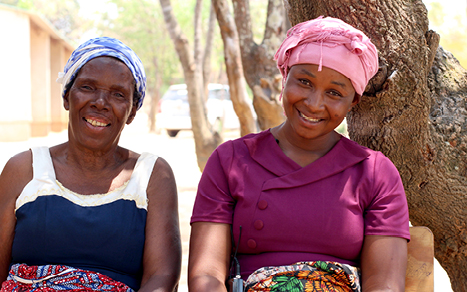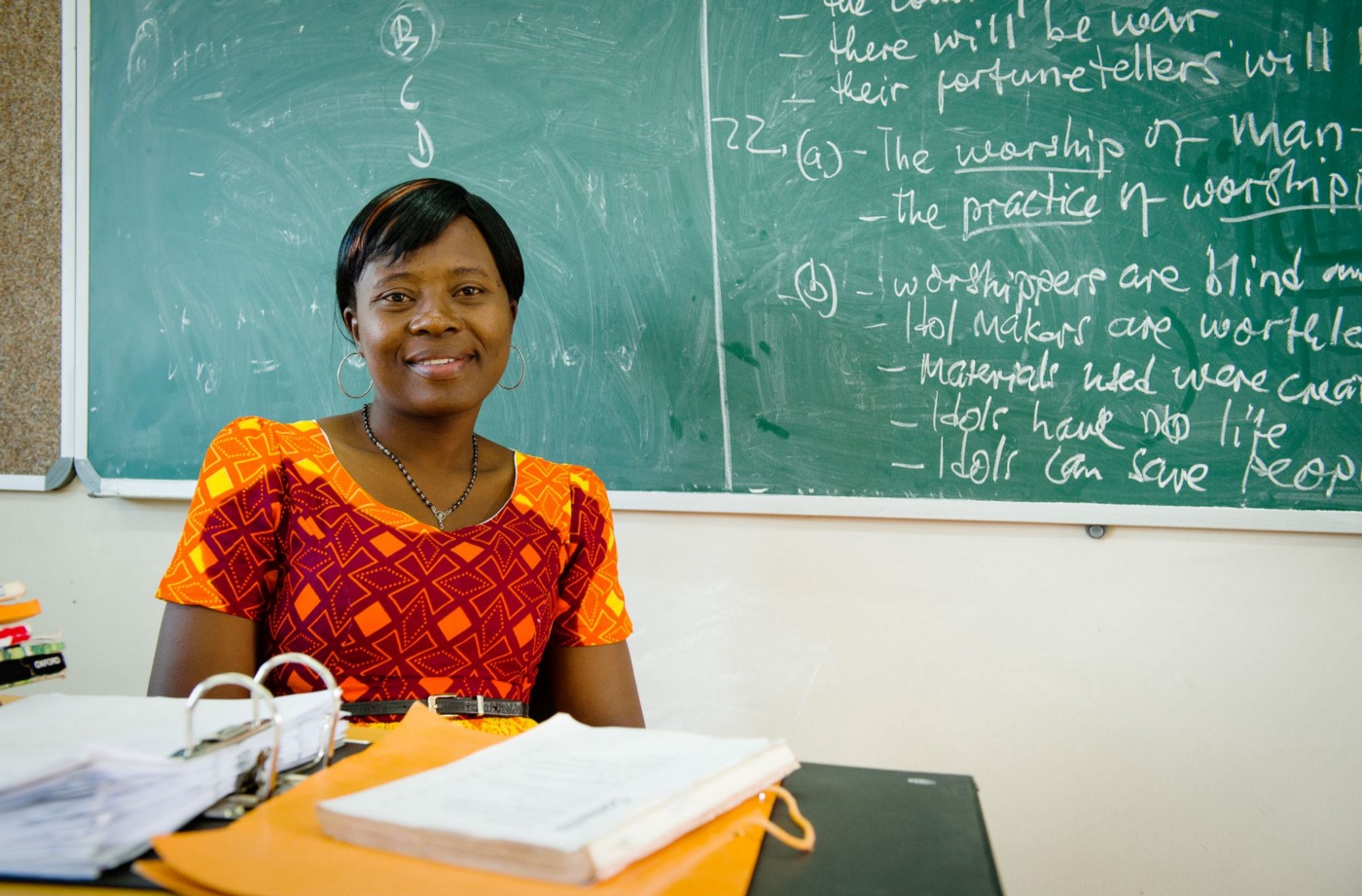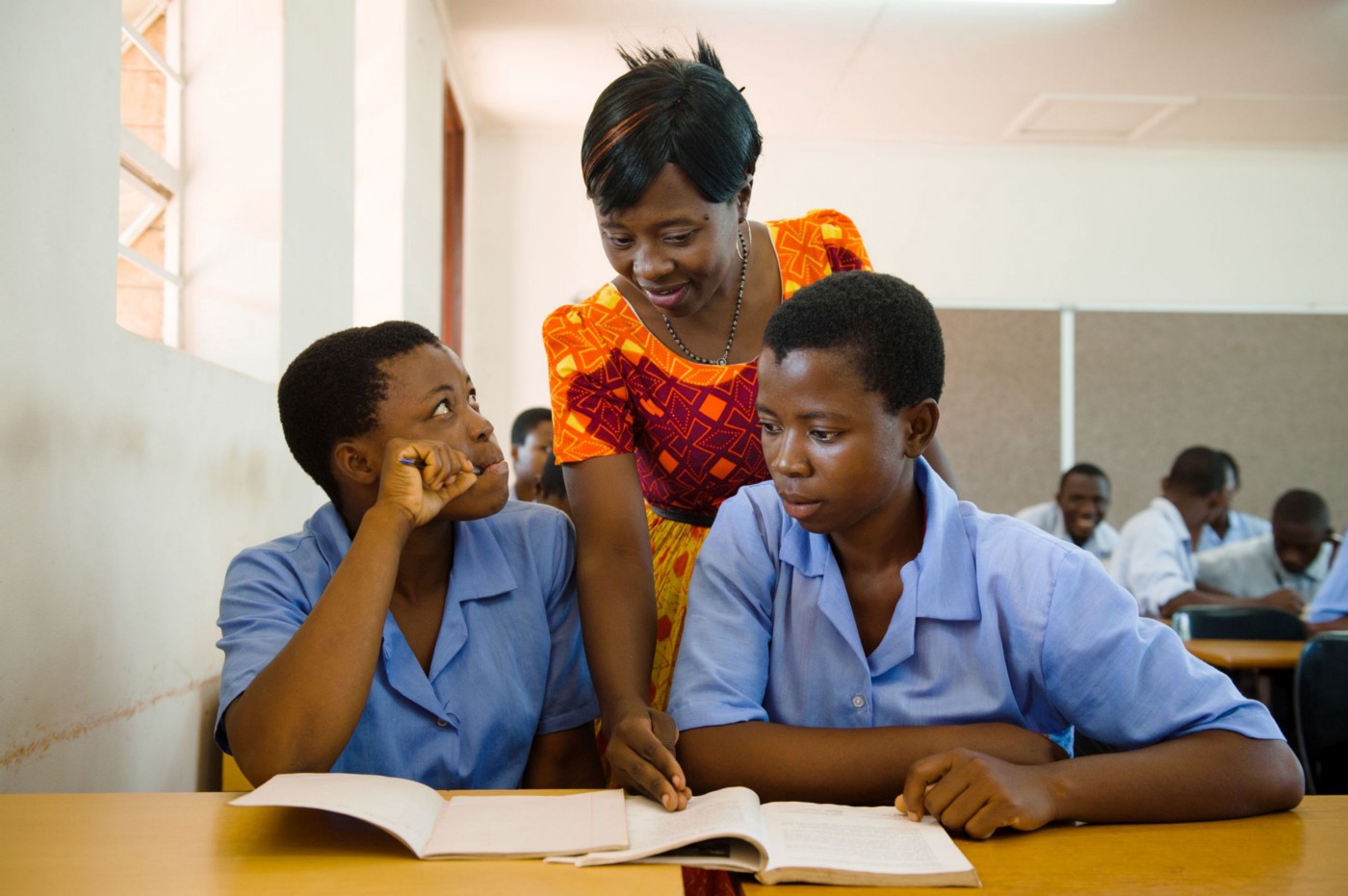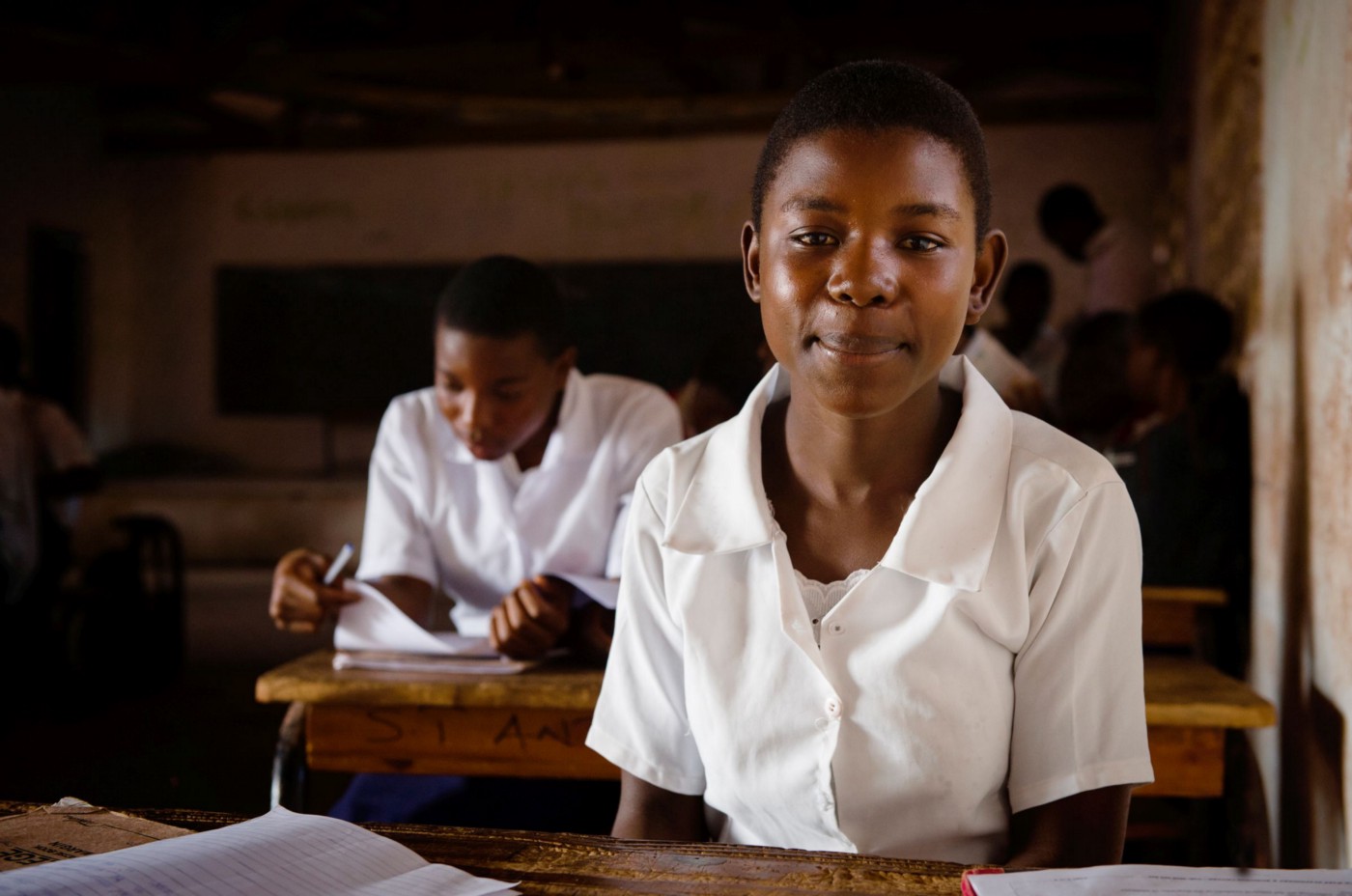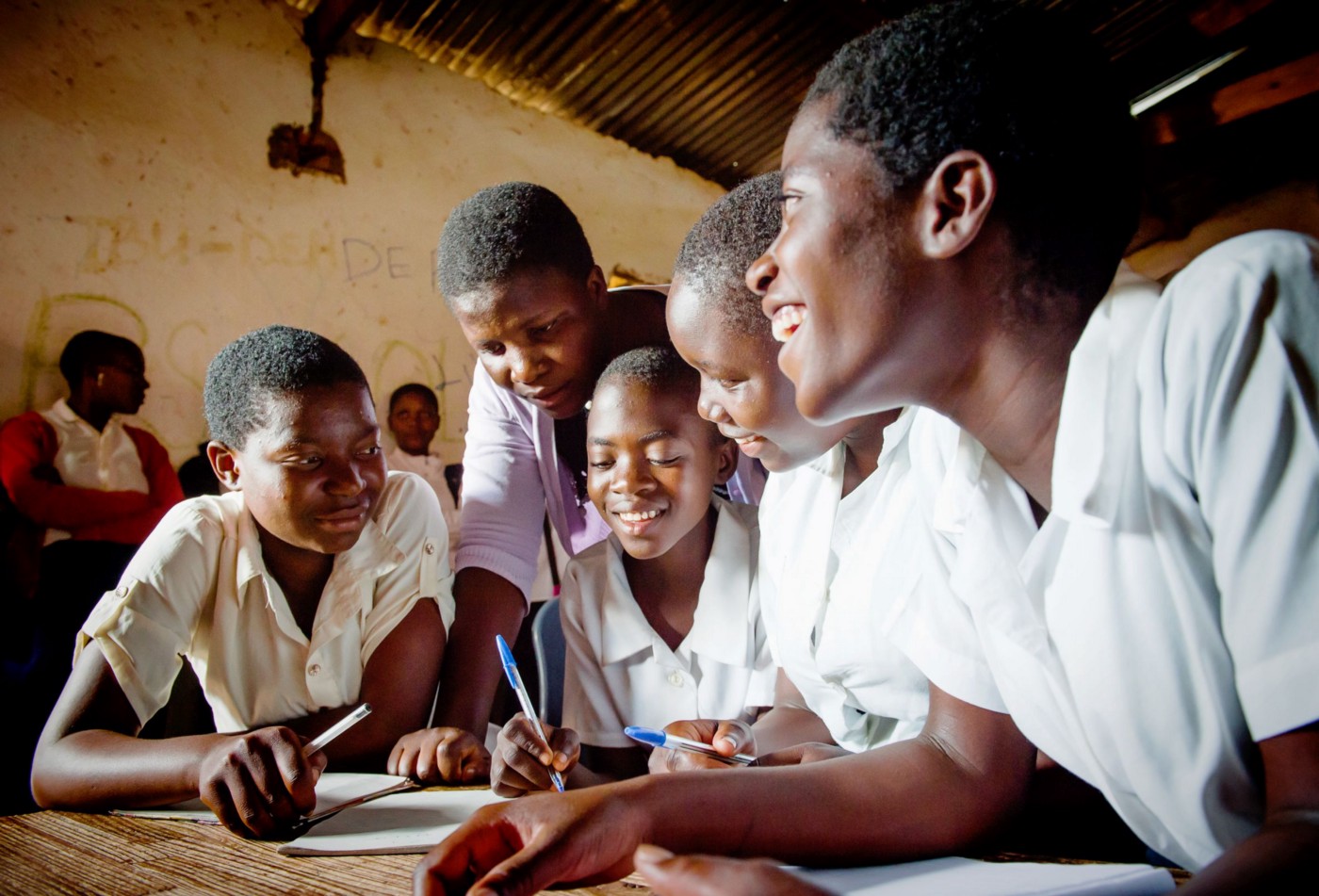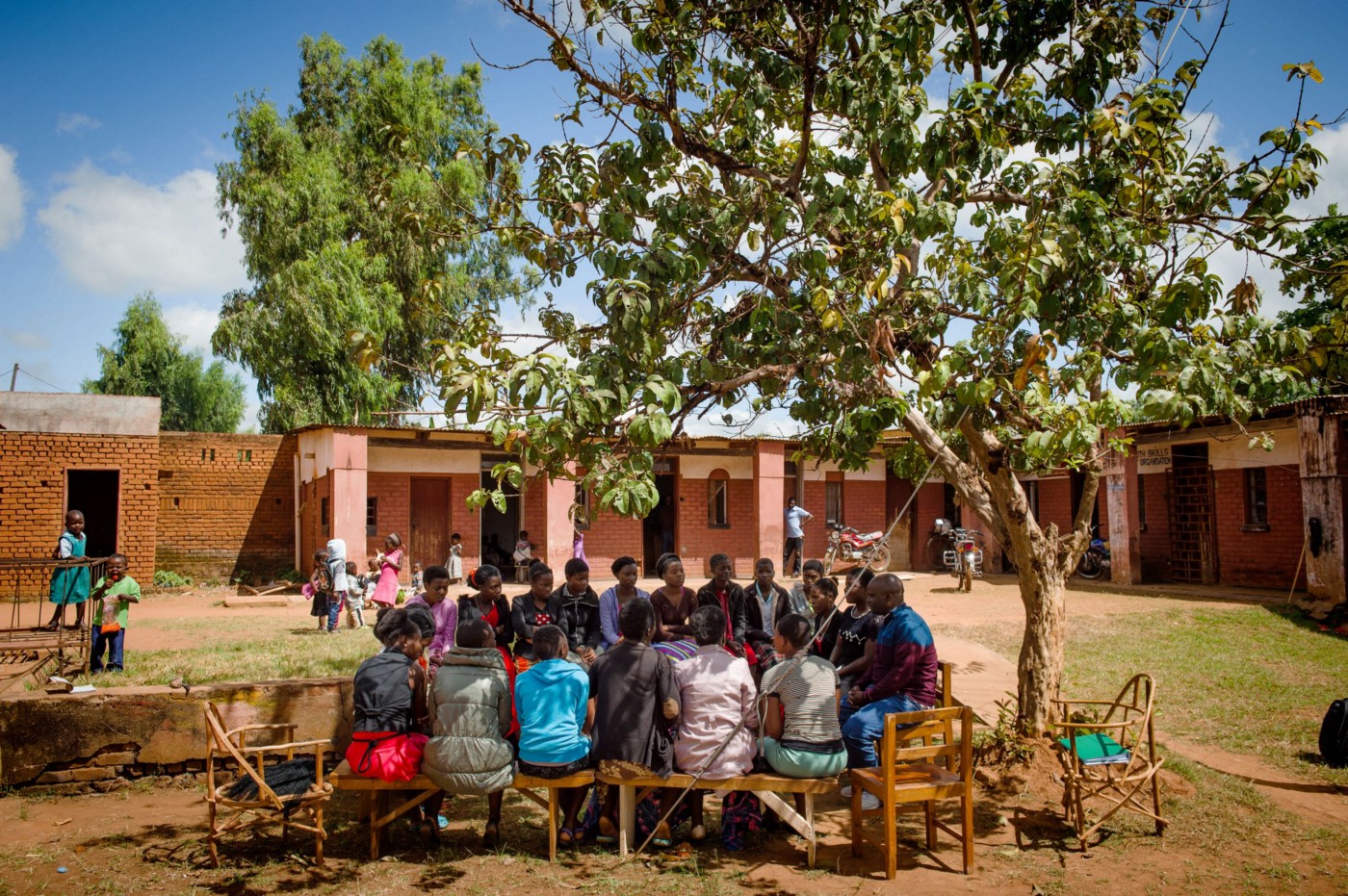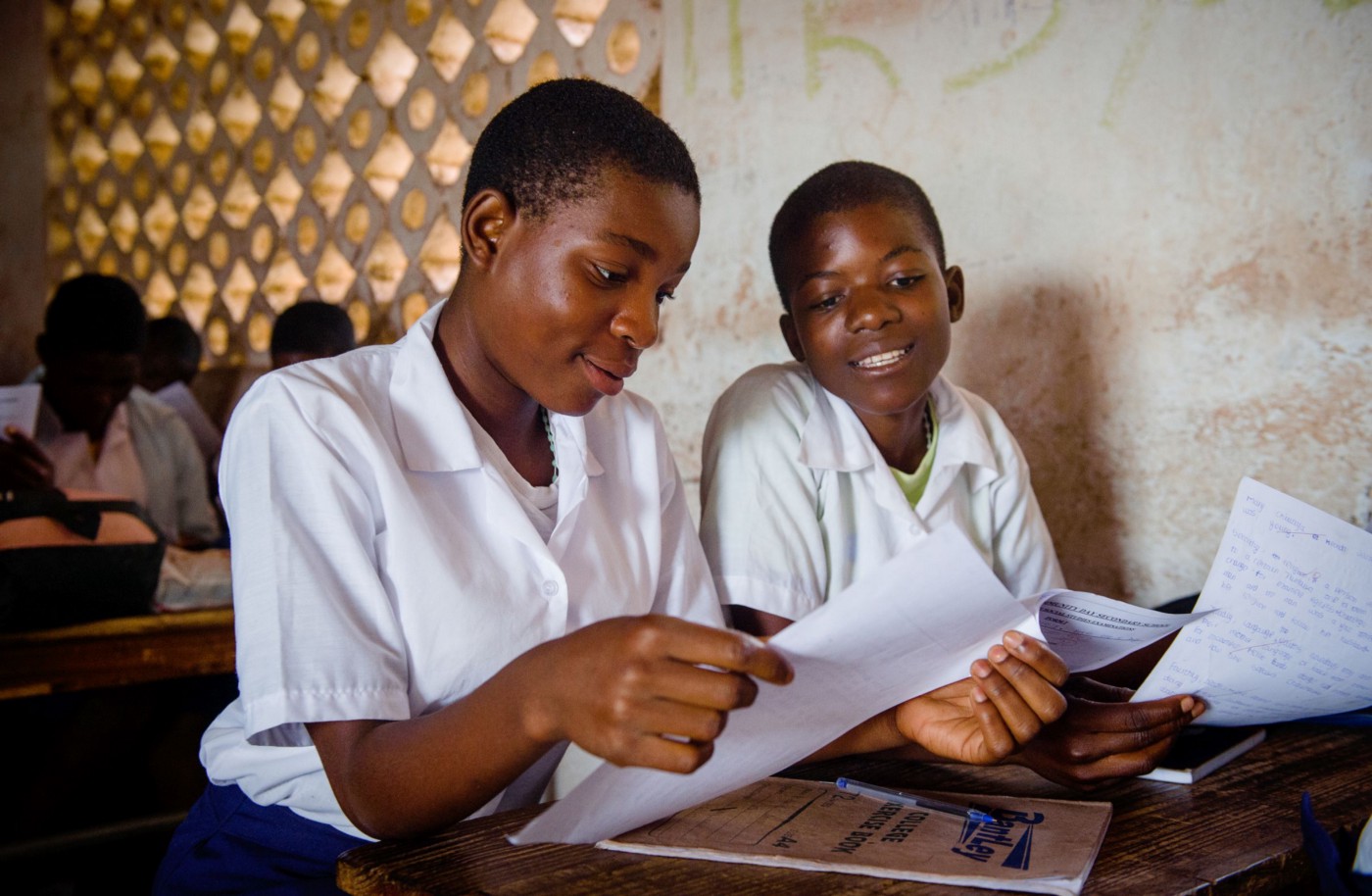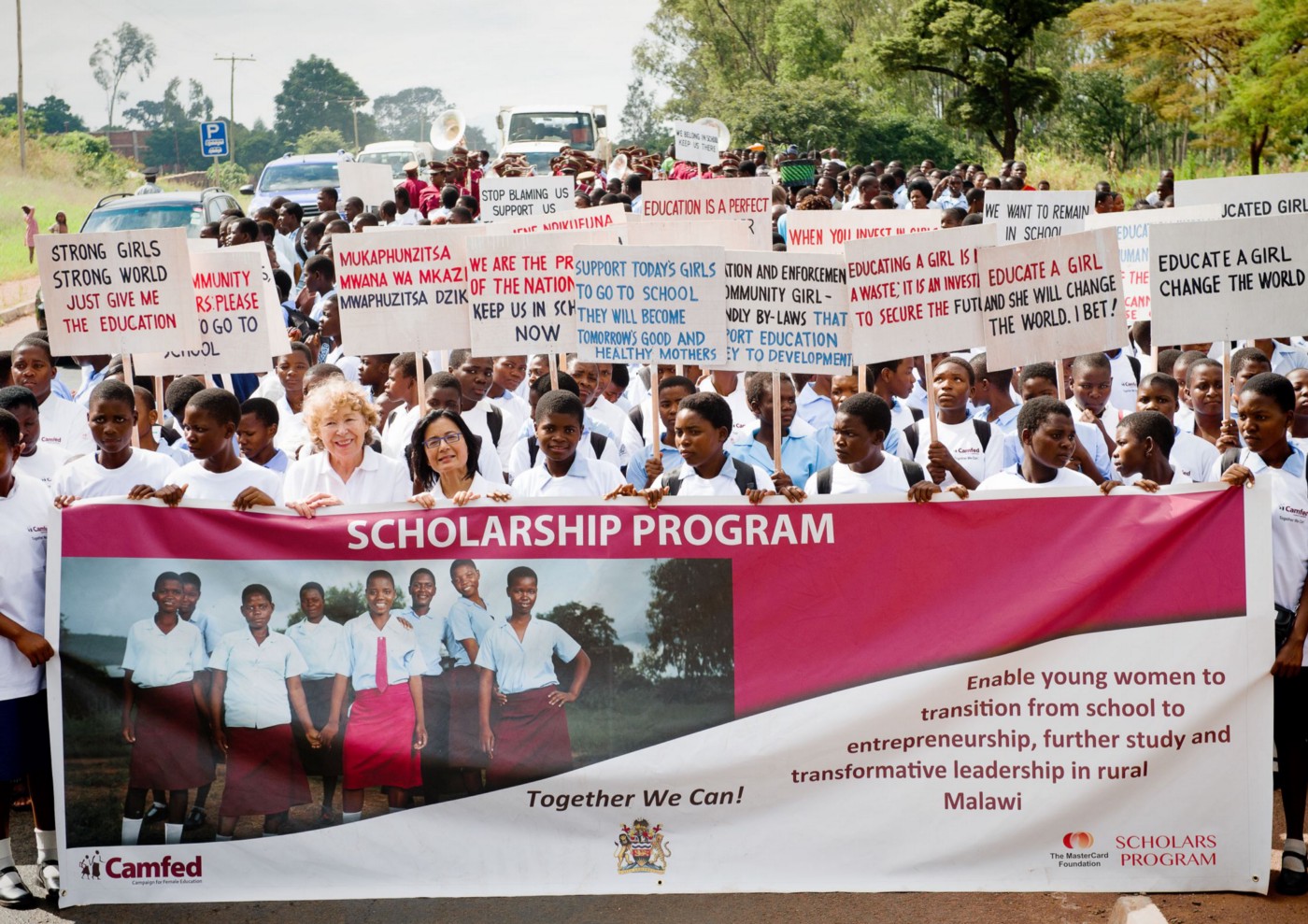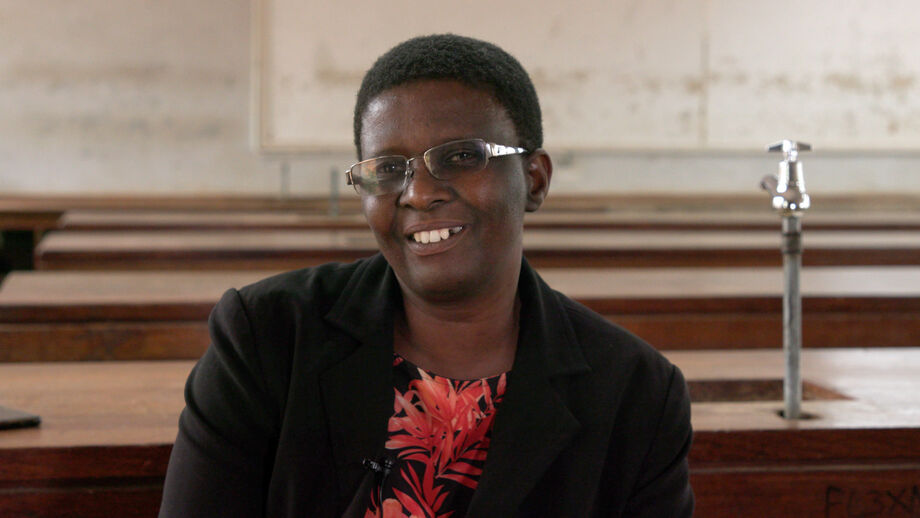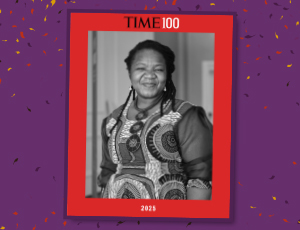This Day of the African Child, we are highlighting Camfed’s Teacher Mentor Program, a cornerstone of our work supporting marginalized children in sub-Saharan Africa to attend and fulfil their potential in school.
Teacher Mentors — government teachers trained in psycho-social support and child protection — work in partnership with schools and communities to address the barriers to girls’ education. The first point of call for vulnerable children, Teacher Mentors facilitate young women’s transition through secondary school. Mercy Kansale is a Teacher Mentor at a secondary school in Zomba district, Malawi. With 10 years of teaching experience, her passion for helping young women and driving change in her community runs deep:

Helping learners in my class. (Photo: Eliza Powell/Camfed)
If girls drop out of school, it means that their future has ended there
Poverty and the cost of school fees make girls vulnerable to exploitation. As a result, early marriage and pregnancy become the biggest reasons for girls dropping out of school. If girls drop out of school, it means that their future has ended there.To overcome the challenges of early pregnancies, there must be frequent talks to the girls. As a Teacher Mentor, I give counsel on HIV/AIDS and reproductive health. Education helps us to address these issues, because we can testify to the importance of school, and the disadvantages of early marriage, when sometimes it seems like the only option.

CAMA member Esmie, who champions girls’ education. (Photo: Eliza Powell/Camfed)
Esmie, one of the girls Camfed supported to go to school, is now a Camfed alumna in the Camfed Association (CAMA network). She explains it like this:
One barrier to girls’ education is peer pressure with men. If you have no money, friends might encourage you to accept offers from men, saying that they will buy things for you. That they will provide anything you want or need in your life. But they will always ask for something in return. So from that, it’s very common for us to have early marriage or early pregnancies. It’s a big challenge for girls.
It is the responsibility of a Teacher Mentor to ensure that important messages about these topics are delivered to the children at the right time, before they are in a position where they are forced to drop out of school. As a Teacher Mentor, I am most proud of seeing my girls in school. I cannot say that I have reached that 0% dropout rate, no. But the drop outs due to early pregnancies have reduced, and this is very encouraging.
Poverty and the resulting pressure for girls to remove themselves as a financial burden on their families are issues that take place outside of school, and that is when the Community Mentor and I come together to provide the pastoral support that girls need. The Community Mentor is someone that girls can talk to at home. She takes the initiative to go and see girls in their communities, supervise and counsel them.
Camfed alumnae are helping to inspire girls
Another challenge is a lack of role models. Most girls could not dream of becoming a lawyer because they haven’t ever seen a lawyer. They could not dream of being a lecturer, as they don’t know what a lecturer is. But CAMA members are helping to inspire girls. Our collaboration is really good. They tell our learners about their small businesses, the opportunities that are out there, and the dreams that they have achieved since completing school.

Alinafe, who wants to be a doctor. (Photo Eliza Powell, Camfed)
Alinafe, one of our Form 4 students, comes from a very poor background and is supported by Camfed. She explains that her goal is to change the mindset of those who discourage girls from going to school, who say that many people who are educated still aren’t employed. Alinafe says she will prove them wrong, and become a doctor when she finishes school.
The reality is that unemployment in Malawi is high, and many community members feel that a secure family unit is more important than education. There are conflicting ideas, but we want to take out that mentality, to say “whether you are a boy, or you are a girl, you must work hard.” We urge different stakeholders to hold hands so that we can make these girls’ futures bright. This is reflected in the main message of CAMA members’ visits, which is that girls in school must work hard. They also meet with parents directly, here in our assembly hall, and tell them how best to help their children at home so that they can be here on time, attend classes, study at home, and stay in school.
There is a support network that comes together to address issues that girls face.
Girls can be late to school because they are coming from far. For example, for her to leave on time, she must leave home by half past five. Can you imagine? Half past five in the morning, to reach here by half past seven. By foot. They have difficulties coming to school and going back home, because of the long distances, and because of the dangers on the road. Then some of these learners are coming to school with no food.

Linda (second from left) with her schoolmates. (Photo: Eliza Powell/Camfed)
One of our learners, Linda, describes this hardship: “My walk to school is three kilometres. One of the challenges is that sometimes I will go to school without eating lunch, supper or breakfast in two days, especially in the rainy season. At that time you see that many families, they will not have enough food to eat.”
I don’t work alone, there is a support network that comes together to address these issues. The School Based Committee, Mother Support Groups and Chiefs are working hand in hand. The Teacher Mentors meet with the School Based Committee and propose certain girls to be taken into boarding, so they are closer to school, or under the care of the Mother Support Group, who can provide their basic needs. For example, just recently the Mother Support Group was here, giving out tablets of soap to girls who are really needy.
We minimize the challenges that these children face. Hunger. Dangers on the road. A lack of basic supplies.

We come together to address the issues girls face. Photo: (Eliza Powell/Camfed)
The School Based Committee helps us in counselling the girls, and identifying those who are most in need. They have their own funds from their field in the community where soya beans and nandoro are cultivated. They sell the crops and the money is used to support our learners, to minimize the challenges that these children face. Hunger. Dangers on the road. A lack of basic supplies. Because of this, they can still be learning, and they can stay in school.
After a meeting we had without our Chief in April, he took the responsibility to sensitize other Chiefs on the importance of keeping girls in school. The Chiefs met separately, and he took this opportunity to tell them about the developments taken by Camfed or the government to keep our learners in school, and how they can be implemented at community level.
When I see Camfed I see hope for girls

Secondary scholars Annie and Fanny in class. (Photo: Eliza Powell/Camfed)
To me, when I see Camfed I see hope for girls. Normally, girls from rural areas are at risk of dropping out because of poverty. Now, not only are they in school, but they have been provided with everything they need to succeed. I feel like it’s something that I can be proud of, working with girls and seeing them in school, and doing whatever I can do to make them stay longer in school. If I could give one piece of advice to the girls? I would encourage them to work hard. That we should not underrate ourselves. We can do wonders. I always tell my girls, you can achieve what other women have achieved in life. Now they have role models.
So I see hope for the girls, and I see that Malawi will be a better nation in the near future. Because, as the saying goes, if you educate a girl, you have educated a whole nation. We are there to assist. We can give back to the community. So if we work hard, if we are educated, if we have the resources, we can make Malawi a beautiful country.
Camfed Malawi recently launched a 10-year partnership with The MasterCard Foundation to support 3,500 girls through secondary school and in the transition to independent livelihoods. The training of Teacher Mentors like Mercy is a vital component of this partnership, which creates strong networks of support around marginalized girls. Mercy is a key example of how Teacher Mentors mobilize and maintain the vital infrastructure of support around the most marginalized students, so that no girl gets left behind.
If you believe in the work Camfed is doing, please lend your support.

Camfed Malawi team members, MasterCard Foundation Scholars and Camfed alumnae with Ann Cotton, Founder and President of Camfed and Reeta Roy, Founder and CEO of The MasterCard Foundation, celebrating the launch of a new 10-year partnership in May 2017. (Photo: Eliza Powell/Camfed)
